- Home
- Patricia McLinn
Body Brace (Caught Dead in Wyoming, Book 10) Page 3
Body Brace (Caught Dead in Wyoming, Book 10) Read online
Page 3
“Previously known as the Miners’ Camp Massacre, according to Mike.”
“—was about the Bozeman Trail and happened in 1867. Mrs. P would say about the Bozeman Trail and broken treaties. She’d be the one to tell you details.”
“I don’t know why there was a fight here over people going to Bozeman, but I do know one thing.”
Diana raised Oh, do you? eyebrows.
“The Native Americans won, because it was once called a massacre. Would’ve been called a battle if the other side won, right?”
She chuckled. “You’re darned near a graduate of the School of Mrs. P.”
Chapter Five
After Mrs. Parens and Aunt Gee arrived, the conversation centered on the ongoing kids’ camp and the upcoming reenactment. Right after we dealt with the topic of sea salt caramel pie.
Initially saying they were too full for dessert, both Mrs. Parens and Aunt Gee decided to accept a sliver when they saw Diana and me indulging.
I indulged unimpeded, while Diana explained why her kids weren’t attending the camp this time around.
“We got caught by the every-other-year schedule. By the time it came back on my radar, they’d committed to other things.”
“Why is it held every other year?” Diana could thank me later for the redirect. “And why the move when it seemed to have been at its previous site forever?”
I knew what the Independence said. I wanted to hear what they said.
“The schedule of every other year remains a topic of discussion amongst the committee. Another proposal would be to have the camp annually while the reenactment continues in alternate years.”
“It will continue to be discussed forevermore,” Aunt Gee grumbled.
“As for the site—” Mrs. Parens loftily ignored her neighbor’s insertion. “—it moved after the heirs of the property where the events originated sold it to Palmer Rennant three years ago. The next reenactment and camp were grandfathered into the sales agreement. We asked him at the time of the sale as well as multiple times subsequently about continuing at that site. He persisted in delaying giving us an answer. The fact that he did not attend or demonstrate support for the events two years ago increased our uneasiness. Our lawyer drew up an agreement for moving forward. We had numerous meetings with Palmer Rennant without, however, a conclusion.”
“Stood us up, too, more than once,” Aunt Gee said with indignation. She seemed to be in a particularly feisty mood, which was saying something.
“In the end it was only last September that we received an informal indication that he would bar our activities from his property and it was not until the end of the year that he officially informed us of that decision.” Palmer Rennant was in serious trouble with the teacher.
“We were fortunate to have that earlier indication,” she resumed, “because, based on that, we sought other venues. We were further fortunate that this other landowner allowed the use of our new location.
“And, finally, we have been most fortunate to have Nadine Hulte running both the week-long Two Rivers Camp and the reenactment. Her experience over the past decade and a half, as well as her impressive organizational skills have allowed the events to proceed as smoothly as ever, despite changing locations.”
“Well, I don’t see Nadine as being so perfectly organized,” Gee objected. “Coming out of the meeting tonight, the light showed inside the back of her SUV and it was a mess. Piles of magazines and newspapers and bags and bags of stuff. Old clothes, water bottles, pill bottles, and I swear enough shoes to start a store — if anybody wanted old, used shoes. You didn’t see it, going around the other way, but it was a mess.”
“No doubt that is from her job with Paige Schmidt involving estate sales and therefore temporary. She is more than organized and competent with the camp and reenactment.” Short and to the point from Mrs. P … Aunt Gee definitely got under her skin this time.
Distracting the combatants, I asked, “Who’s Palmer Rennant? I haven’t come across him.”
“He and his family moved here ten years ago. To all appearances they are upstanding citizens,” Aunt Gee said.
Which meant they had not been subjects of sheriff’s department dispatch calls, but she didn’t know them personally, so there was no telling what they were truly up to.
“Newcomers, huh?” My question drew a grin from Diana, not from either of the other two. “Ranchers?”
“They bought a ranch, but, no.”
“What’s he doing with the land he wouldn’t let the camp and reenactment use again?”
“Nothing. Doesn’t matter what anyone says about property rights, it’s a disgrace.” Aunt Gee cast a disapproving look toward Mrs. P. “Could have been the end of both those Cottonwood County institutions if not for this other property.”
“Who’s the owner of the new property?”
“That’s another excellent question.” Aunt Gee paused to give her next words additional weight. “Because we don’t know.”
“Really? An anonymous landowner?”
Mrs. Parens remained unfazed by the concept. “Our lawyer, naturally, checked that the signatory permitting our activities was legitimate and legal. If the owner remained anonymous behind a holding company or another construct, that person is not obligated to reveal himself or herself to us.”
Emmaline Parens never would have made it as a journalist. Not only allowing other people to keep secrets, but not sharing the secrets she did know. And I had the distinct feeling she knew more than she was telling. Which made me want to know.
“Do you think Rennant dragged it out before telling you no on purpose? To mess up your arrangements for this year?”
“I cannot speculate on the man’s reasons. However, it is unimportant, since Two Rivers Camp is already a success and the reenactment will be as well in the new venue,” Mrs. Parens said.
Aunt Gee was having none of that — thank heavens. “I can speculate all right. Power. He was sitting back with his mind made up, laughing up his sleeve at the yokels jumping through hoops, hoping and hoping he’d say we could use his property when it belonged more to us than him, no matter what the deed said.”
“I never observed any indication that he felt he was superior in that way to his fellow residents.” I noted Mrs. Parens’ usual precision and spotted an opening in it.
“That way? What about in another way?”
“I could not say.”
I kept trying. She kept blocking me.
In the end, I tried opening another door. “He’s not a native?” Aunt Gee shook her head. “So not a matter of someone coming back to where he grew up. Why did he move here? Do you know more about him?”
“They moved here when their elder child, their daughter, was a freshman in high school. She was an excellent all-around student and now has graduated from college and is working at a hospital in Boston. Their son is starting his sophomore year in college, studying computer technology. In that area he excelled, as well as in athletics. However, he did not apply himself in other areas.”
If anyone ever committed a crime in this county over an academic record, Emmaline Parens would solve it in a heartbeat.
“Anything else?”
“I do understand that the parents divorced a year ago after thirty years of marriage.”
A wife cast aside after thirty years? Now we had conflict. Wouldn’t help this story any, though, since Rennant was out of the picture. But questioning habits are hard to break, especially with Mrs. P clamming up.
“Know any details? Other parties involved?”
Mrs. Parens’ mouth pursed as she held silent. Aunt Gee glanced from me to her, then brightened.
She thought she knew more about Palmer Rennant than her neighbor did. At the very least, she was willing to tell more. That worked for me.
“No known other parties,” Aunt Gee said.
“Gisella,” Mrs. P admonished.
Aunt Gee was having none of it. She focused on me and I returned the favor
. Mrs. Parens had scruples? Fine. She could sit in the corner — figuratively — with them while Aunt Gee and I dished.
Diana, apparently realizing my hostess instincts came in a distant second behind my question-asking instincts, did a more? pantomime, lifting her dessert plate, gesturing toward the fridge, and nodding to the other plates on the table.
“Please, help yourself and anyone else who wants one, Diana.” I wanted a second slice, too.
“Both Rennants worked in some sort of tech, very high earners. And he — maybe both of them — were entrepreneurs. They did that fire. Well, yes, Diana, thank you, I will have just another sliver.”
“Fire? Oh. F-I-R-E? Financial Independence, Retire Early?”
“That’s it. They socked away money to be able to leave their jobs. He sold a company, too, which is how they bought the property.”
“Sounds like a dream,” Diana said.
She had takers all around for a second slice. Good thing I’d gone back for the second pie. We weren’t likely to run out tonight, but I wouldn’t have had leftovers.
Gee swallowed a mouthful. “Understand it was a dream they worked real hard to make come true. Don’t know much more than that. Oh, except he dated Clara Atwood from the museum not long after the divorce became final.”
Gee could say the museum, because the county had only one. The Sherman Western Frontier Life Museum. Which, to my knowledge, had one full-time employee, Clara, the curator.
“Oh, did he?”
“Uh-huh,” Aunt Gee confirmed with significance.
“Not long after the divorce, which happened a year ago, which was when informal word came through that Palmer Rennant would not welcome back the Miners’ Camp Fight reenactment and Two Rivers Camp on his property. That’s interesting timing.”
“It is,” Aunt Gee agreed.
Both of us looked toward Mrs. P. She pressed her lips together.
Others might think that was an Mmm of appreciation for the pie. I knew better. We weren’t getting any confirmation from her.
“Anything else?”
Aunt Gee shook her head with regret.
Time to wheedle my way back into Mrs. P’s good graces.
“Such a shame Palmer Rennant interfered with the reenactment. How far back does the tradition go?”
Mrs. Parens spoke precisely, “The reenactment began in the early 1950s as an effort to draw more tourists on their way to Yellowstone Park to Cottonwood County.”
And away from Cody was the unspoken element of that statement. Sherman and Cottonwood County often tried to lure the financial boon of tourists heading for Yellowstone away from Cody and Park County. It was a difficult sell, since there was a direct route from Cody to the Park’s Eastern Entrance. Coming to Sherman required a deliberate detour north that only a small percentage were willing to make.
Cottonwood County didn’t quit trying.
“Initially,” Mrs. Parens continued, “it was held every year. However, that became a strain on the resources of the county and the participants. By the early 1960s, it was being held every other year, and by the end of that decade it ceased as a regular event. It was, however, revived sporadically, generally in conjunction with anniversaries of events. The quasquicentennial was a turning point.”
“The what?”
“The quasquicentennial is the one hundred and twenty-fifth anniversary.” Mrs. Parens’ expression remained solemn, but in her eyes glimmered either satisfaction at pulling out a word I didn’t know or mischief at pulling my leg.
No telling which.
“I’ve heard of sesquicentennial for a hundred and fifty years—”
She nodded approvingly.
“—but never quasquicentennial.”
“Then it is a shame you were not here for the celebration in 1992 of that anniversary of the Miners’ Camp Fight. It was quite a success, being a cooperative effort of the miner reenactors, the tribal reenactors, and a broad group of organizers. That became the beginning point of holding the reenactment and Two Rivers Camp every other year. In many ways the camp has been more influential than the reenactment, though not as lucrative,” she said, “and therefore not of as much interest to a segment of the county’s leadership.
“The marked exception to that lack of interest stems from those who attended the camp themselves and now are in a position of leadership. Friendships have been forged at that camp that have lasted ever since and friendships continue to be forged there. We are particularly pleased by attendees who now send their children or are otherwise involved, connecting new generations.”
“That could be an interesting angle, to talk to two people who met at the camp and now have their children at it. Do you or Clara have names of people to contact? If I decide to take the assignment,” I added far too belatedly.
“Nadine Hulte would be the best person to contact as I am certain she has such names in her records, if not from her memory of running the event over the past decade. Though with such short notice, I’m not certain…” Mrs. Parens trailed off in entirely uncharacteristic uncertainty.
That triggered my suspicions.
“There is one pair of former camp attendees who would be the optimal choices to contact in the interests of time and because I am certain they would willingly help you. Davon Everett and—”
That name rang a vague bell, but didn’t explain her trailing off.
“—Tom Burrell.”
That name rang a city’s worth of bells, all clanging an alarm together, explained her pause, and more than justified my suspicions.
She looked at me with limpid innocence.
I wouldn’t say Emmaline Parens looked like a sweet, elderly lady — she was too upright, too intelligent, too exacting for that — but I hadn’t expected such perfidy from her.
And, in this case, not all aimed at me, either.
Tom Burrell would not be happy if Mrs. P pushed me into interviewing him.
Which I was not going to do.
“Huh. Is Davon Everett, related to O.D. Everett?” I asked.
“He is his son. You remember O.D. Everett?”
“Yes, from the museum committee dinner last winter. I try to remember men of good judgment, which he demonstrated by watching ‘Helping Out’.” As soon as we were introduced, he’d brought up the feature that represented my regular beat as consumer affairs reporter for KWMT. “And he wasn’t just saying it, he knew details of specific pieces.”
Mrs. Parens gave me the half patient, half chiding look that said she thought I was avoiding a topic.
I dove in. To prove I wasn’t.
“And Tom Burrell, huh? I suppose that means Tamantha is involved in the camp now?”
“Tamantha is, indeed, involved and has been for several years. O.D.’s grandson is also involved in—”
I interrupted first with sorrowful headshakes, then words. “Such a shame there’s no time to delve into that aspect. If only I’d known about this assignment last week — if I take it. Actually, there’s a funny story about that.”
I regaled her with the account of Thurston Fine not wanting the assignment — gleefully throwing him under the bus of her ire — and of Les Haeburn’s uncharacteristic begging that I take it.
Her half patient, half chiding look returned.
Okay, she wasn’t buying my change of subject to KWMT-TV’s inner workings? I’d dangle a topic she couldn’t resist.
“The history of the reenactment’s interesting, but what about the original event? There must be something important, since they’ve chosen to reenact it.”
With a glint of a challenge to Mrs. Parens, Aunt Gee said, “Some will tell you that’s because Cottonwood County doesn’t have a great deal of choice of events from its history. Suppose they could reenact Rupert Caswell’s arrival at the end of the first cattle drive here, but since that would be a bunch of dusty cowboys bringing along a half-starved herd after traveling all the way from Texas, and bedding down — exhausted — for the night, that wouldn’t be
too inspiring.”
We waited for Mrs. P to respond to the deliberate provocation in that dismissal of the county’s history.
I used the time to memorize it word for word to share with Rupert’s great-granddaughter. Linda Caswell would love it.
“I cannot disagree with that assessment.” Mrs. Parens’ calmness didn’t falter even at three jaws dropping. “I believe this event was selected for reenactment based on its action, rather than its specific historical significance. Still, it is a small part of a larger whole that is significant. If it helps to elucidate that larger history, it can be viewed as worthy.”
She turned to me. “I should be pleased if you choose to take this assignment. If you do, I hope to talk to you at the site about the history of the fight here and how it fit into events occurring elsewhere in what became the state of Wyoming. I will be there both Friday for the wrap-up of Two Rivers Camp and Saturday for the reenactment. However, I believe it is time now for Gisella and I to take our leave.”
She’d resisted the invitation to stand up for Cottonwood County history. What the heck was going on?
* * * *
After Mrs. Parens, Aunt Gee, and Diana left, I watched the Ten — the newscast at that hour.
With more than five hours to prepare since the Five, Thurston worked more than a sentence of the breaking news of Russell Teague’s condition into his spiel.
This time he made it sound like an on-air get-well card, delivered to someone he was trying to curry favor with. Even if Russell were well enough to watch TV news, he wasn’t getting KWMT-TV in a Chicago hospital.
I brushed my teeth twice to try to get the bad taste out of my mouth.
DAY TWO
FRIDAY
Chapter Six
I took the assignment.
First, I told Audrey, who was working as assignment editor this week. I told her not to put it on the board yet.

_preview.jpg) Almost a Bride (Wyoming Wildflowers Book 1)
Almost a Bride (Wyoming Wildflowers Book 1)_preview.jpg) Prelude to a Wedding (The Wedding Series Book 1)
Prelude to a Wedding (The Wedding Series Book 1)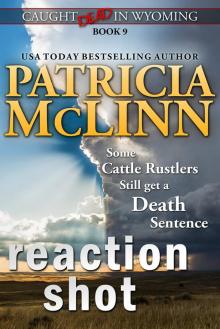 Reaction Shot (Caught Dead in Wyoming, Book 9)
Reaction Shot (Caught Dead in Wyoming, Book 9)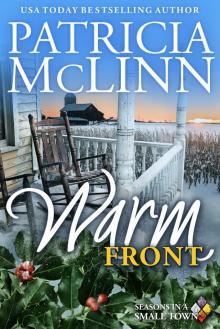 Warm Front
Warm Front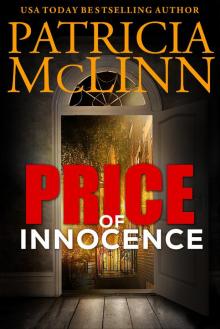 Price of Innocence
Price of Innocence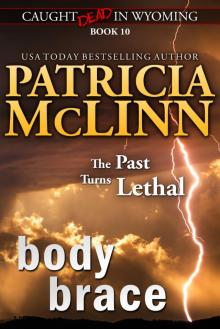 Body Brace (Caught Dead in Wyoming, Book 10)
Body Brace (Caught Dead in Wyoming, Book 10) Death on Covert Circle
Death on Covert Circle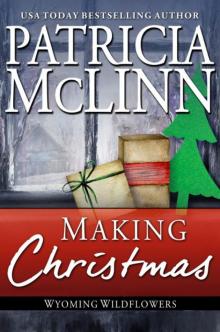 Making Christmas
Making Christmas Death on Torrid Ave.
Death on Torrid Ave. Death on the Diversion
Death on the Diversion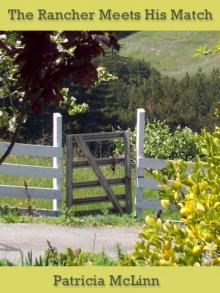 The Rancher Meets His Match
The Rancher Meets His Match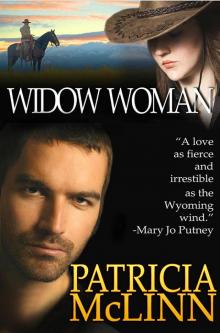 Widow Woman
Widow Woman The Runaway Bride
The Runaway Bride Hoops
Hoops A Stranger in the Family (Book 1, Bardville, Wyoming Trilogy)
A Stranger in the Family (Book 1, Bardville, Wyoming Trilogy)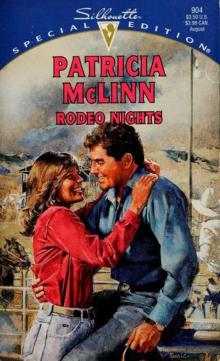 Rodeo Nights
Rodeo Nights Wedding Series Boxed Set (3 Books in 1) (The Wedding Series)
Wedding Series Boxed Set (3 Books in 1) (The Wedding Series)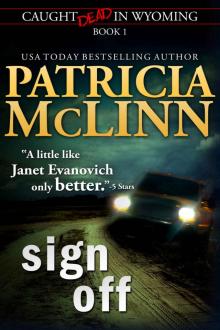 Sign Off (Caught Dead in Wyoming, Book 1)
Sign Off (Caught Dead in Wyoming, Book 1)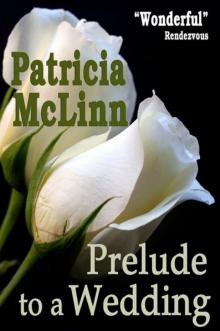 Prelude to a Wedding
Prelude to a Wedding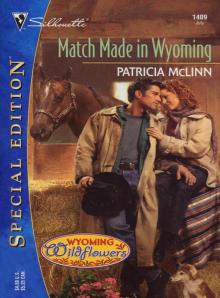 MATCH MADE IN WYOMING
MATCH MADE IN WYOMING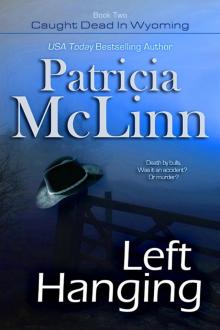 Left Hanging
Left Hanging What Are Friends For?
What Are Friends For?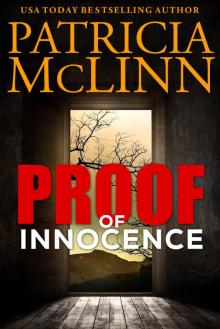 Proof of Innocence
Proof of Innocence Hidden in a Heartbeat (A Place Called Home, Book 3)
Hidden in a Heartbeat (A Place Called Home, Book 3) Baby Blues and Wedding Bells
Baby Blues and Wedding Bells Least Likely Wedding?
Least Likely Wedding? Heart Stealers
Heart Stealers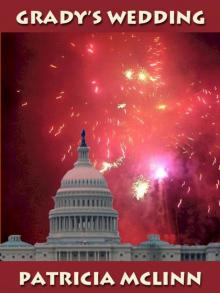 Grady's Wedding
Grady's Wedding Right Brother
Right Brother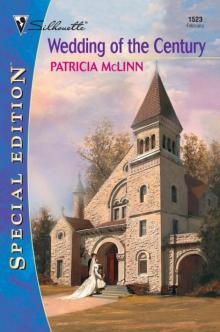 Wedding of the Century
Wedding of the Century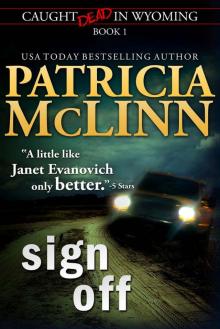 Sign Off
Sign Off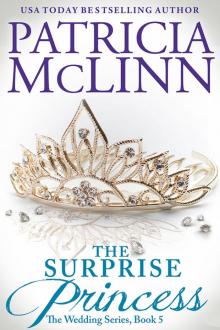 The Surprise Princess
The Surprise Princess Wyoming Wildflowers: The Beginning
Wyoming Wildflowers: The Beginning